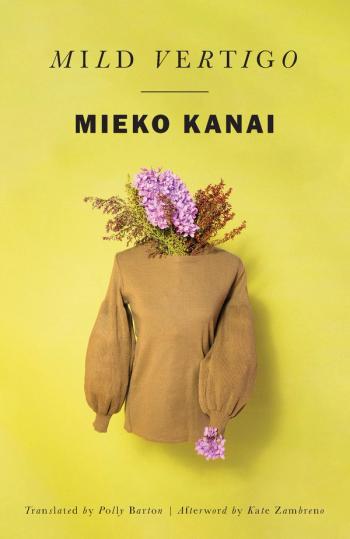Translated by Polly Barton
With a contribution by Kate Zambreno
The apparently unremarkable Natsumi lives in a modern Tokyo apartment with her husband and two sons: she does the laundry, goes to the supermarket, visits friends, and gossips with neighbors. Tracing her conversations and interactions with her family and friends as they blend seamlessly into her own infernally buzzing internal monologue, Mild Vertigo explores the dizzying reality of being unable to locate oneself in the endless stream of minutiae that forms a lonely life confined to a middle-class home, where both everything and nothing happens.
With shades of Clarice Lispector, Elena Ferrante, and Kobo Abe, this verbally acrobatic novel by the esteemed novelist, essayist, and critic Mieko Kanai—whose work enjoys a cult status in Japan—is a disconcerting and radically imaginative portrait of selfhood in late-stage capitalist society.

